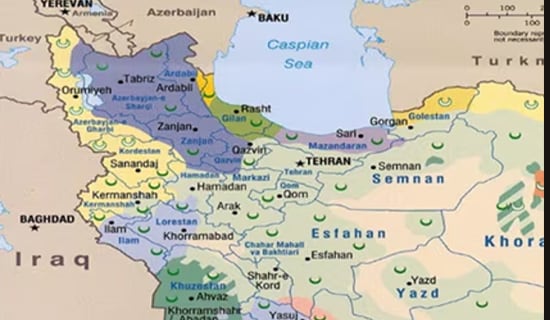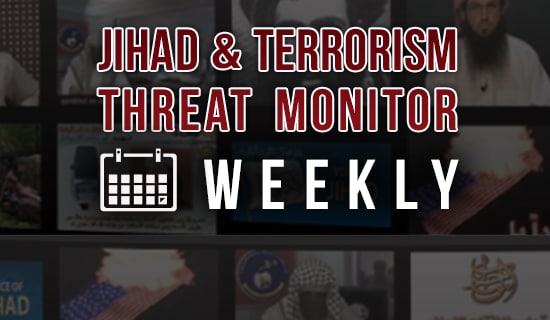Political science professor Gevorg Mizaryan, a supporter of Putin and the war in Ukraine, wrote a column, published on the online portal of the conservative daily Vzglyad, defending the role of the military correspondents, bloggers in particular. There have been calls to curb their activities because of their sensationalism and criticism of the Russian defense establishment.
Such a move, argues Mizaryan, would be self-defeating. This is not World War II, when the official Soviet media had a captive audience that had no other available sources of information. Today, if the patriotic military correspondents are silenced or forced to totally toe the official line, the public that is dissatisfied with the arid Defense Ministry bulletins might turn to Western accounts of the situation that are published in Russian or even to the Ukrainian sources. According to Mizaryan, it is far better that the public receive their information from patriotic sources.
Mizaryan's commentary follows below:[1]

Military correspondent Anastasia Elsukova (Source: Iz.ru)
"A wave of 'put-downs' of the war correspondents (i.e., a group of journalists and bloggers, who cover the Special Military Operation [SVO] from the field) has erupted in the Russian media space. And this wave was led not by foreign agents, not by the waste buckets of the Ukrainian security services, and not by the Western media writing in Russian, but by Russian politicians, journalists and experts.
"Their complaints boil down to the fact that war correspondents [voenkor, a Russian abbreviation of voyenniy korrespondent] (who are contemptuously referred to as 'war smokers' [voenkur]) are insufficiently qualified in military affairs, are spreading panic and hype about combat operations, and misinforming society. This means that they need to be placed under strict control.
"There is a measure of truth to these accusations. Military correspondents (let's call them that, although a military correspondent is a journalistic profession and not the self-description of a blogger, who suddenly decides to go to the front line) do indeed often publish unverified data, or data without the necessary explanations.
"For instance, in early May they en masse published posts about the large-scale relocation of Ukrainian equipment towards Belgorod Oblast [in Russia proper], creating the impression that an attack on Belgorod was being prepared. They often write angry posts, thereby, according to experts, undermining trust in the [Russian] defense ministry (which, let us remind you, is the only one we have and we won't have another) during the course of hostilities. Moreover, it happens despite the fact that the Russian Criminal Code contains Article 280.3 (discrediting of the Army).
"However, this is not enough to launch a crackdown on the war correspondents. In the words of comrade Saakhov [the villain in the Soviet comedy Kidnapping, Caucasian Style], 'all this is true, all this is certainly correct, yes... and the document is written correctly... however this is only "on the one hand."' On the other hand, military correspondents carry out the most important function in the information war. In turn, the objective and subjective shortcomings of their work are, instead, the inevitable costs of this war.
"For instance, proponents of the theory that 'everyone should only listen to official information' should not forget two things: first, we are not living in the times of the Great Patriotic War, where the information space was limited to the party-controlled radio and newspapers.
"Back then, a citizen of the Soviet Union who felt that he was not receiving enough official information had no opportunity to open the New York Times or even the Völkischer Beobachter (the official newspaper of the ruling party of Nazi Germany) to get more information, but now he definitely can. And let's be honest: the British and Americans are superior to us in terms of waging information warfare. Therefore, if Russians go there [to Western media] for more information, not content with just the bulletins of the Defense Ministry, a Western understanding of unfolding events will form in their heads.
"And this is where the war correspondents, who have earned the trust of Russians during their 15 months of work on the front line, are badly needed, providing prompt, detailed information about what is going on. True, some may not like their information, but no one can doubt their patriotic attitude. Thus, it is better for Russians to turn to war correspondents for this alternative information than to Western, or, even worse, to Ukrainian internet 'garbage piles.'
"There is only one complaint against the war correspondents – the lack of an explanatory section [in their reports]. No one prevents them from not only posting certain news (for example, the story about columns of Ukrainian vehicles heading towards Belgorod), but also from providing clarifications. In the case mentioned above, it could have been information about this direction [towards Belgorod Oblast] being secured by the Russian army, about the readiness to repel an attack, and etc. These additional clarifications will occupy the journalist for no more than a minute but will spare a lot of nerves for the people of the Belgorod Oblast, who will read it all.
"However, this complaint does not provide a reason to strictly control war correspondents (which will affect at least the promptness of their publications, not to mention the conceptual part). Provided it is constantly harmonized with the authorities, the posts will differ little from the press releases, which come out late and are too desiccated.

Defense Ministry spokesperson Igor Konnashenkov (Source: chinadaily.com.cn)
"True, war correspondents on the whole are amateurs in the field of information warfare. However, we do not have a pool of officials-information specialists, who can write about the SVO events in a creative, prompt, and detailed manner. But there are war correspondents.
"It is possible, naturally, to experiment and demand for people to read only official sources of information, introduce total information censorship and generally reduce all information work to a single broadcast from a single source (as is the case with Ukrainian television). However, proponents of such experiments shouldn't forget that this proxy war with the West in Ukraine is existential for Russia. At stake is not only the survival of our state, but also that of the Russian people as a single civilizational supranational community.
"Thus, we perhaps should not experiment and try to 'reinvent the wheel' in this situation. Wouldn't it be simpler to fix the shortcomings of the war correspondents and then thank them for their enthusiasm and work for our common victory, which is 'just one for everyone?'"

Gevorg Mirzayan (Source: Lenta.ru)
[1] Vz.ru, May 18, 2023.








